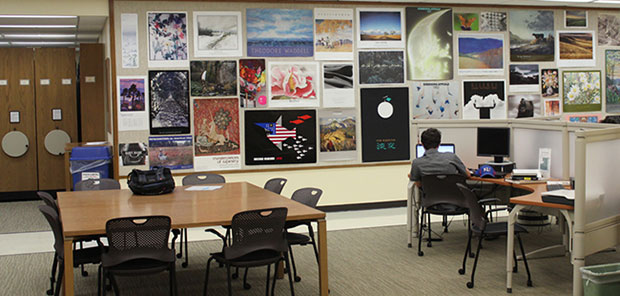Starting Points: Reference
-
Oxford English dictionary This link opens in a new windowThe accepted authority on the evolution of the English language over the last millennium. It is the guide to the meaning, history, and pronunciation of over half a million words, both present and past.
-
Johns Hopkins guide to literary theory & criticism This link opens in a new windowIncludes articles on individual critics and theorists, critical and theoretical schools and movements, and the critical and theoretical innovations of specific countries and historical periods.
-
Encyclopedia of Literature and Science by "This reference defines the rapidly emerging interdisciplinary field of literature and science. An introductory essay traces the history of the field, its growing reputation, and the current state of research. Broad in scope, the volume covers world literature from its beginnings to the present day and illuminates the role of science in literature and literary studies. A wide range of experts contributed entries to this volume, each of which concludes with a brief bibliography. The entire volume closes with a list of works for further reading" (publisher's description).
Call Number: PN55 .E53 2002, Watson 3 WestISBN: 0313305382Publication Date: 2002 -
The Encyclopedia of Victorian Literature by "The Encyclopedia of Victorian Literature spans the full sweep of literary genres, figures, and global contexts that define this influential period, blending accessibility with an unmatched breadth of coverage and authoritative scholarship. It comprises over 330 fully cross-referenced entries, combining in-depth omnibus essays exploring major topics, including the novel, plays, poetry, and global Victorian studies, with succinct articles on themes such as cosmopolitanism, journalism, race, sexuality, and reading" (publisher's description).
Call Number: EbookISBN: 1118405382Publication Date: 2015 -
The Oxford Encyclopedia of British Literature (5 vols) by Provides "comprehensive coverage of the entire history of literature in the United Kingdom and the Republic of Ireland in the major literary languages."
Call Number: Ebook or Print: PR19. O95 2006, Watson 4 WestPublication Date: 2006
Welcome
Your Class: Dr. Anna Neill's Spring 2018 English 598 class.
This guide has been created to help students navigate the University of Kansas Libraries and their various research resources. If you have questions, you can:
- Email Sherri Brown, the Literatures & Humanities Librarian, for help or to set up an appointment: sherri.brown@ku.edu
- Visit the Research Help Desk in Watson Library or Anschutz Library for additional assistance or use the chat box below on the right to contact the Research Help Desk.
As you Begin Your Research
Create a Search Strategy - Once you have chosen your tentative paper topic, spend some time thinking about the types of resources you will be looking for and the keywords you will use to find what you need.
Consider looking for information in various formats:
- Books, essays in books, or book chapters
- Scholarly journal articles
- Primary sources - historical newspaper or magazine articles
- Specialized encyclopedia articles
- Book reviews
- Websites
Find these Resources using various search methods:
- KU Library Catalog & KU Quick Search - search these to find books and book chapters, films, and more that are available at KU Libraries. Quick Search will also return articles that may be relevant to your topic. (You may also find some information using a Google Book search, but be aware that oftentimes you will not be able to access the full content of a chapter).
- KU Libraries Databases - use these to search for journal articles and essays on your topic. Book reviews are often found in databases. Some databases will also include citation information for books and book chapters, and more. Particular databases are helpful for finding primary source materials. See the tabs for Finding Articles and Primary Sources above for more information on what databases may be useful for your research.
- Websites - use sites mentioned in class or look for other credible websites - make sure you know who is posting the information and whether he/she has credibility and information to back up his/her claims.
Evaluate the Resources and Information found:
Don't blindly accept the information you find! Consider the source of the information and its context. Ask yourself key questions when evaluating source information:
Credibility - Who wrote or created a particular work? Is he/she an expert in the field of study? Is the piece from a peer-reviewed journal or a popular magazine? If it is a book, who published it - a university press, a trade press, a vanity press? If it is a website, who sponsored it?
Currency - How up-to-date is the information? Depending on your topic, you may be able to rely on older resources, or you might need the most current information available. If you are using a book or article, note when it was written. For a website, look for both when it was created and when it has last been updated.
Reliability - Does the person writing the piece have a possible agenda - how biased is the information presented? Are references included for information? Do you trust the source? Does the information in this work match what you have read in other sources?
Relevancy - How relevant is the information to your research needs? Is there something else that would fit your needs better?
Adapted from: Taylor, Terry. “Evaluating Information.” 100% Information Literacy Success. New York: Thomson, 2007. 101-39, &
Evaluating Information: Applying the CRAAP Test. Meriam Library, California State University, Chico.
http://www.csuchico.edu/lins/handouts/eval_websites.pdf. Oct 1, 2008.
Literatures & Humanities Librarian
Ask a Librarian
We can help with your research questions -- contact us by chat, phone, email, text or at a Research Help desk.







